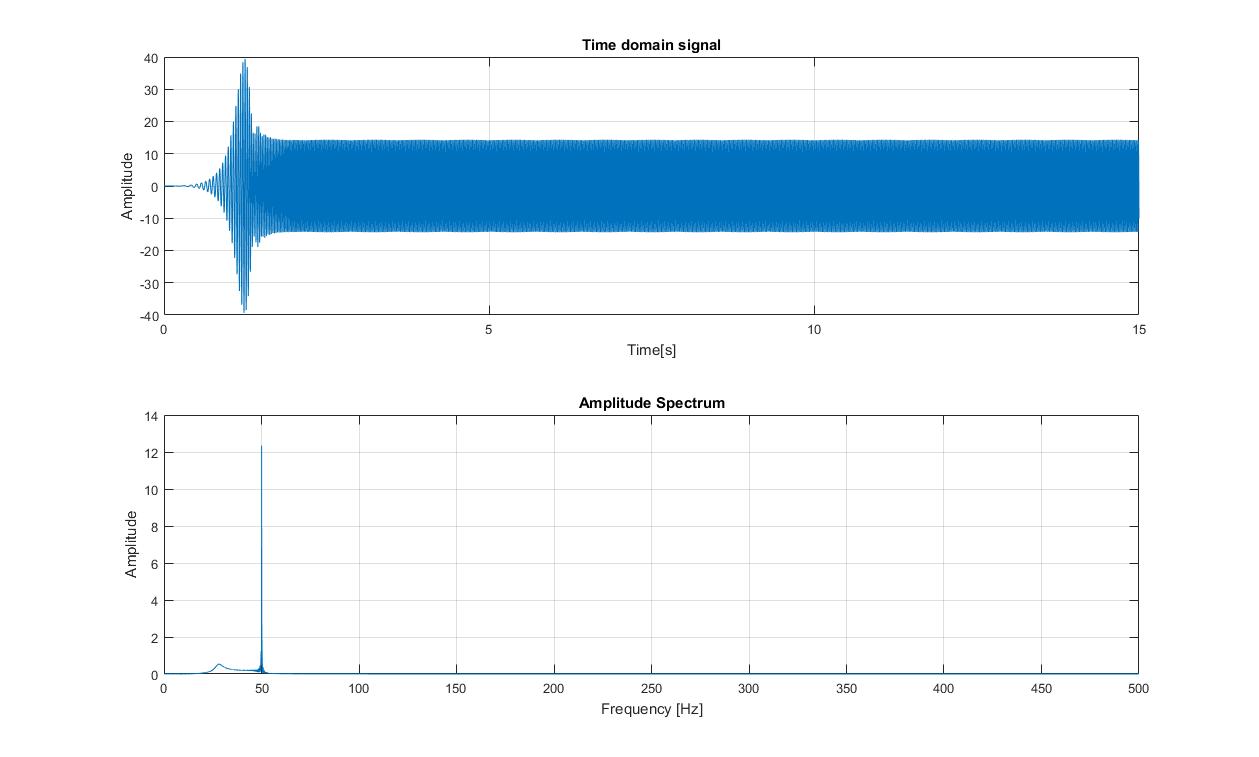I was working on simulation of steam turbine vibration under unbalance condition. I wish to perform an FFT for the vibration velocity (mm/s) respond and plot the frequency on the x-axis and the real amplitude on the y-axis. The respond vibration velocity data can be downloaded here: https://drive.google.com/open?id=0B21C655TFYWJSVFjY1VPeVg0WHM
I am using the following MATLAB code:
Fs =1000; % Sample Frequency
ti = 0:0.001:15;
ti= ti';
data = signal;
N = length(data);
Y(1)=0;
Y=fft(signal);
freq = 0:Fs/N:Fs/2-Fs/N;
freq = freq';
amplitude = abs(Y(1:floor(N/2)))/floor(N/2);
subplot(211)
plot(ti,data)
xlabel('Time[s]')
ylabel('Amplitude')
title ('Time domain signal')
grid on
subplot (212)
plot(freq,amplitude);
xlabel('Frequency [Hz]');
ylabel ('Amplitude');
title('Amplitude Spectrum')
grid on
when executed the code this is what I've got
fromThe time in "time domain signal" was corresponding to increased the rotation load of the rotor . For example at time 0-2 second the rotor RPM was increasing , so the unbalance force will excite the system which is lead to greater amplitude. after the 2s the rotor has reached the maximum load , so the amplitude decreased because the presented of damping inside the system from the time domain the max peak was in 39.42 mm/s at time 1.248, and then the amplitude goes down and stable with average in 14 mm/s at the rest of the time. I Thought it will give me two spikes at frequency domain with exactly the same amplitude in y-axis which is given above
Why I didn't get the spectrum signal as I wanted, Can someone please help me? Thanks.

